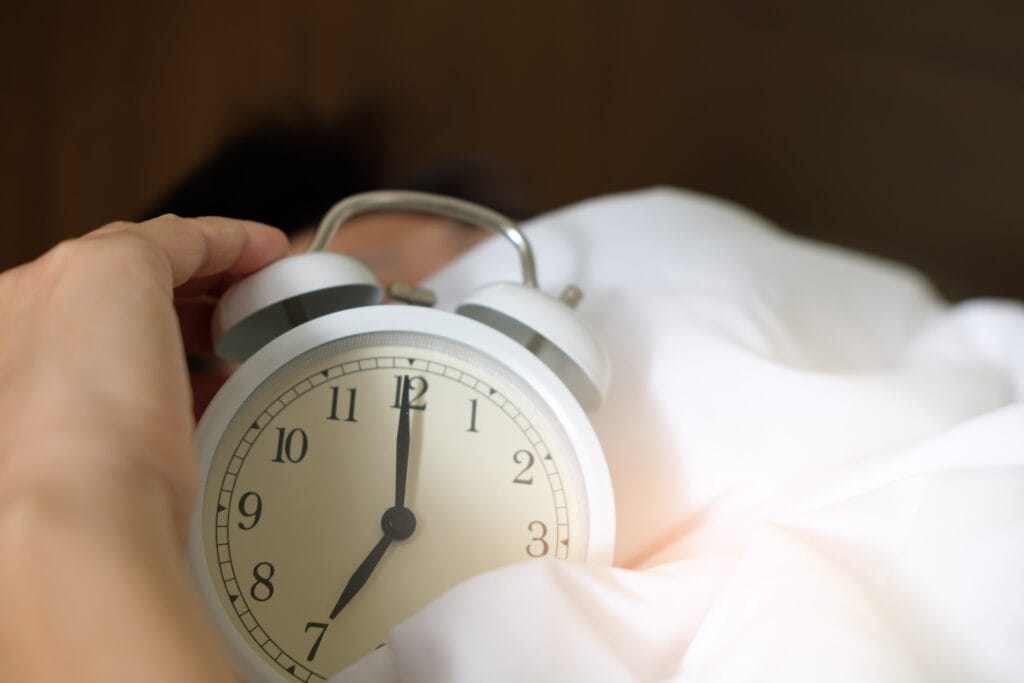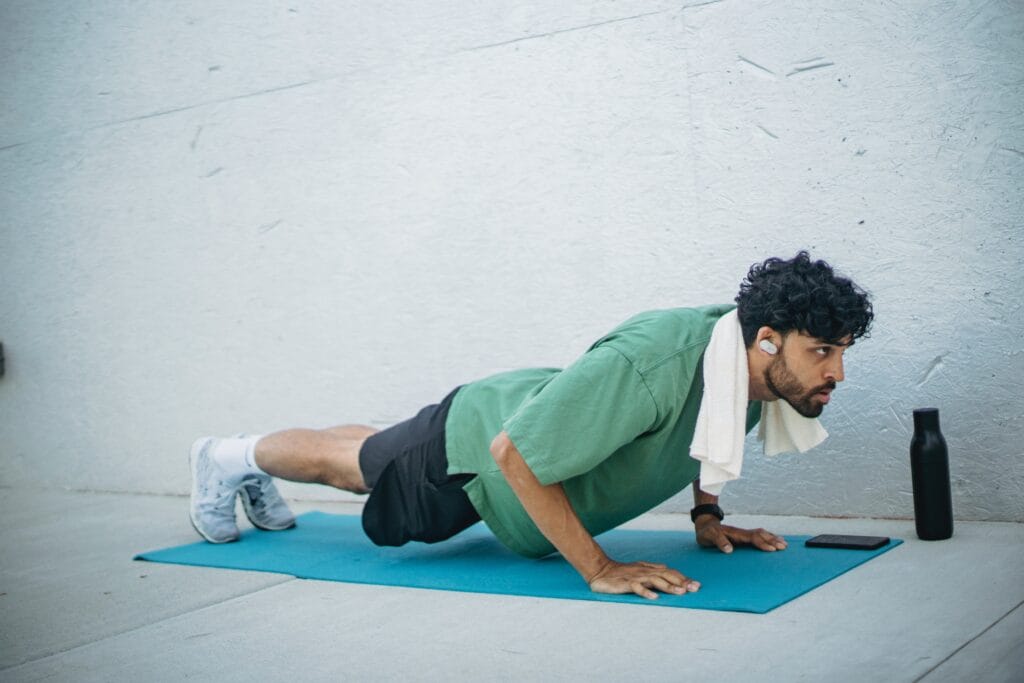Getting a good night’s sleep is essential for overall health and well-being. However, falling asleep can sometimes be a challenge. If you find yourself tossing and turning in bed, here are some ways to fall asleep that may help.

1. Create a Relaxing Bedtime Routine
ways to fall asleep : One of the most effective ways to fall asleep quickly is to develop a consistent bedtime routine. According to a study published in the Journal of Sleep Research, people who stick to a nightly routine are 56% more likely to experience better sleep quality. This can involve winding down with a book, taking a warm bath, or listening to calming music.
How It Works:
A regular pre-sleep routine trains your brain to recognize when it’s time to relax. It signals to your body that sleep is imminent, which reduces stress and promotes faster sleep onset.
Practical Tips:
- Establish a routine that starts at least 30 minutes before bedtime.
- Limit exposure to bright screens (phones, TVs) during this time.
- Incorporate calming activities like light stretching or mindfulness meditation.
2. Keep a Consistent Sleep Schedule
Your body has an internal clock, known as the circadian rhythm, which regulates sleep and wake cycles. According to the Centers for Disease Control and Prevention (CDC), people with irregular sleep patterns are more prone to insomnia and daytime fatigue.
How It Works:
Going to bed and waking up at the same time every day helps regulate your circadian rhythm, making it easier to fall asleep and wake up refreshed.
Practical Tips:
- Even on weekends, try to maintain your usual sleep schedule.
- If you need to adjust your sleep schedule, do so gradually by shifting your bedtime by 15 minutes each night.
3. Ways to fall asleep : Optimize Your Sleep Environment
ways to fall asleep : Creating an ideal sleep environment can significantly improve sleep quality and help you fall asleep faster. Statistics show that 75% of people who optimize their sleep environment (cool temperature, minimal noise, and darkness) report improved sleep.
How It Works:
Your sleep environment plays a key role in helping you relax. When you’re too hot, cold, or distracted by noise, your body struggles to wind down. By creating a calm and comfortable environment, you can make it easier for your body to relax into sleep.
Practical Tips:
- Keep the room cool, ideally between 60-67°F (15-20°C).
- Invest in blackout curtains or an eye mask to block light.
- Use earplugs or a white noise machine to drown out background noise.

4. Ways to fall asleep : Practice Deep Breathing or Meditation
Deep breathing exercises and mindfulness meditation can be powerful tools for calming the mind and promoting sleep. Research from the American Psychological Association (APA) shows that meditation reduces insomnia by up to 50%.
How It Works:
Deep breathing increases the body’s oxygen levels and activates the parasympathetic nervous system, which is responsible for promoting relaxation and slowing the heart rate. Meditation works similarly, calming the mind and reducing stress.
Practical Tips:
- Try the 4-7-8 breathing technique: inhale for 4 seconds, hold your breath for 7 seconds, and exhale for 8 seconds.
- Engage in 5-10 minutes of mindfulness meditation before bed, focusing on your breath and letting go of racing thoughts.
5. Ways to fall asleep : Limit Caffeine and Alcohol Intake
Caffeine and alcohol are known sleep disruptors. According to the Sleep Foundation, consuming caffeine within six hours of bedtime reduces total sleep time by over one hour. Alcohol, while initially sedating, disrupts REM sleep and can cause frequent awakenings.
How It Works:
Caffeine is a stimulant that blocks adenosine, a neurotransmitter that promotes sleep. Alcohol, on the other hand, disrupts the body’s natural sleep cycle, making it difficult to stay asleep throughout the night.
Practical Tips:
- Avoid caffeine (coffee, tea, energy drinks) after 2 p.m.
- Limit alcohol intake, especially close to bedtime.
- Opt for herbal teas like chamomile or peppermint, which promote relaxation.
6. Ways to fall asleep : Exercise Regularly

Exercise is one of the most effective ways to enhance sleep. A study by the National Institutes of Health (NIH) found that 150 minutes of moderate aerobic activity per week improved sleep quality by 65%.
How It Works:
Physical activity boosts the production of serotonin, a hormone that helps regulate sleep, and decreases cortisol, a stress hormone that can interfere with sleep. However, it’s important to avoid intense exercise too close to bedtime as it may have the opposite effect.
Practical Tips:
- Aim for 30 minutes of moderate exercise, like brisk walking or cycling, at least five times a week.
- Try to complete your workout at least 3-4 hours before bed to give your body enough time to wind down.
7. Ways to fall asleep : Watch What You Eat Before Bed
Certain foods and drinks can either help or hinder your ability to fall asleep. A study by the Journal of Clinical Sleep Medicine found that people who eat a diet rich in fiber, lean proteins, and healthy fats are 70% more likely to experience deeper, more restful sleep.
How It Works:
Carbohydrates, especially simple sugars, can cause a spike in blood sugar levels, leading to a restless night. On the other hand, foods rich in magnesium and tryptophan, like almonds and turkey, promote relaxation and sleepiness.
Practical Tips:
- Avoid large meals within two hours of bedtime.
- Snack on sleep-friendly foods like bananas, yogurt, or a small handful of nuts.
- Steer clear of spicy or acidic foods that can cause indigestion.
8. Ways to fall asleep : Limit Exposure to Blue Light
Blue light from smartphones, tablets, and computers can interfere with your ability to fall asleep. Research from Harvard Medical School shows that exposure to blue light in the evening suppresses melatonin production by up to 50%, making it harder to fall asleep.
How It Works:
Melatonin is a hormone that regulates sleep-wake cycles. Blue light exposure at night tricks your brain into thinking it’s still daytime, delaying the release of melatonin and making it harder for you to fall asleep.
Practical Tips:
- Use blue light blocking glasses or install blue light filters on your devices.
- Avoid screens at least one hour before bed.
- Opt for reading a physical book or listening to calming music as part of your nighttime routine.
9. Try Aromatherapy
Aromatherapy, specifically using essential oils like lavender, has been shown to improve sleep quality. A study published in the Journal of Alternative and Complementary Medicine found that lavender essential oil improved sleep quality by 33% in individuals with mild insomnia.
How It Works:
Essential oils like lavender, chamomile, and sandalwood have calming properties that reduce stress and promote relaxation. Inhaling these scents can help signal to your brain that it’s time to wind down and prepare for sleep.
Practical Tips:
- Use a diffuser to disperse essential oils in your bedroom.
- Add a few drops of lavender oil to your pillow or a warm bath.
- Combine aromatherapy with deep breathing exercises for enhanced relaxation.
10. Ways to fall asleep : Seek Professional Help if Necessary
If you’ve tried multiple strategies and are still struggling to fall asleep, it may be time to consult a sleep specialist. According to the American Academy of Sleep Medicine, around 30% of people experience chronic insomnia, and medical intervention may be necessary.
How It Works:
A sleep specialist can help identify underlying issues, such as sleep apnea or restless leg syndrome, and provide treatments like cognitive-behavioral therapy for insomnia (CBT-I), which has a 70-80% success rate in improving sleep.
Practical Tips : ways to fall asleep:
Explore options like sleep studies or therapeutic techniques if your sleep problems persist.
Keep a sleep diary to track your sleep patterns and share it with your doctor.
Falling asleep can sometimes be a challenge, but there are many ways to promote relaxation and improve sleep quality. By establishing a sleep routine, creating a relaxing environment, avoiding stimulants, limiting screen time, practicing relaxation techniques, exercising regularly, using aromatherapy, and trying supplements, you can improve your chances of getting a good night’s sleep. Sweet dreams!





